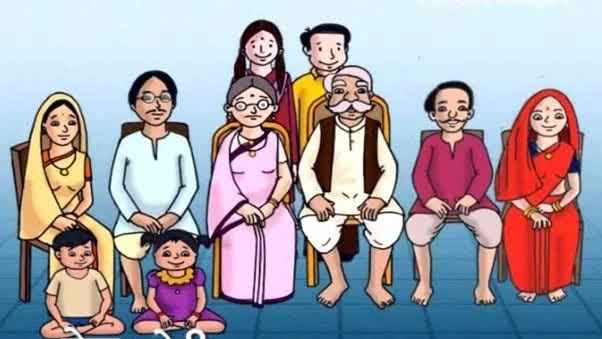


In the course of human civilization, as our ancestors transitioned from the primitive era to a more sophisticated one, the concept of companionship naturally evolved into the formation of families. These families eventually grew into communities, colonies, and beyond. The cornerstone of this progression was the strong family unit, which served as the fundamental building block. Over time, the family unit became the foremost priority for individuals. One's family name became their best introduction, and future relationships and associations were often formed based on the reputation of their family.
In these traditional families, each member had self-assigned roles and responsibilities. Disputes were rare, and the head of the family made the policy decisions, while the rest of the family worked together to implement them. All assets were collectively owned and shared among family members, and individual ownership was uncommon.
However, as time advanced, families began to divide into distant relatives and cousins. The familial bond gradually diminished, and family members turned into occasional guests, meeting only during summer vacations, winter breaks, weddings, or other family functions. The saying "out of sight, out of mind" started to hold true, leading to a growing sense of disconnection. The industrial age and materialistic influences further complicated matters. Wealthy family members started to distance themselves from those who were more humble and grounded. The luxurious lifestyle clashed with the arrival of relatives who were not as affluent or familiar with modern ways. The once-shared household transformed into individual rooms, and conflicts arose when this arrangement was violated.
This modern arrangement has fostered social discrimination based on age, wealth, and values. The existence of elderly care homes is a poignant consequence of this transformation. Eventually, everyone reaches a point where there is no one left to provide care, and moving to an old age home becomes the only option. Loneliness and depression often result from these fragmented nuclear families. In contrast, the traditional joint family system was built on a foundation that kept individuals engaged and prevented feelings of idleness and isolation. Depression and loneliness were almost nonexistent because everyone had a role to play, and personal wealth and possessions were scarce, allowing for numerous positive outcomes and minimal disruptions.
In recent times, the COVID-19 pandemic presented humanity with one of its greatest challenges. Notably, individuals who were far away from their homelands sought to return to their families. Whether or not anyone in these joint families survived the pandemic, it became less significant than the profound fear of dying alone. The strength and solace provided by the family unit became more apparent, emphasizing that true strength lies within the family, rather than the materialistic world of isolation.
Disclaimer: These thoughts are subjective and may not resonate with everyone. Each person has their own wisdom and perspective to consider.